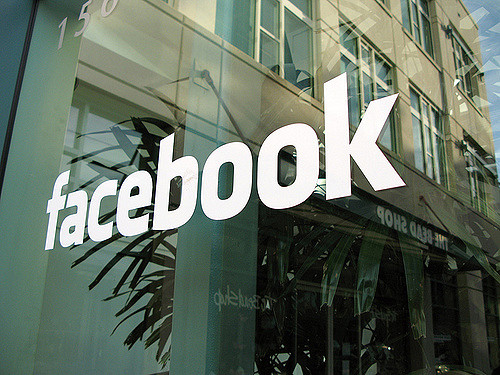Does Facebook Have A Conscience?

Facebook (Nasdaq: FB) recently celebrated its fourteenth anniversary amid much controversy. While it continues to outpace market expectations on all financial fronts, the social pressure on the company is mounting. Several groups and leaders have come forward demanding that tech companies like Facebook do something about the growing tech addiction that is plaguing the youth of today. In fact, not just youth. Facebook addiction is a pervasive phenomenon in modern society, and not a healthy one. Facebook has become the modern-day cigarette.
Facebook’s Financials
Facebook’s Q4 revenues grew 47% over the year to $13 billion, ahead of the market’s estimates of $12.6 billion. EPS of $1.44 was hurt by a tax charge because of the new tax code. Facebook recorded a tax charge of $3.2 billion. Without the tax charge, its EPS would have been $2.21, above the Street forecast of $1.95.
By segment, advertising revenues grew 48% over the year to $12.8 billion, ahead of the market’s forecast of $12.4 billion. Mobile advertising accounted for 89% of its ad revenues compared with 84% a year ago. Revenues from payments and other fees fell 6% to $193 million.
Among operating metrics, Facebook’s monthly active users came in line with the market expectations at 2.13 billion. Daily active users for the service came in lower at 1.40 billion, compared with the market projections of 1.41 billion and 1.37 billion a quarter ago. But this was the first-ever quarter that Facebook reported a decline in daily-active users in the United States and Canada, as it fell from 185 million to 184 million. During the quarter, the company said its users spent 50 million hours less per day. This may well be the beginning of a trend, as users start to de-program themselves from the addiction.
Average revenue per user for Facebook rose an impressive 35% over the year in the United States and Canada to $26.76.
Facebook ended the year with revenues growing 47% to $40.65 billion. EPS grew 54% to $5.39 for the year.
Facebook Competing with Alphabet
Facebook appears to be preparing to compete with Alphabet on all fronts. It is already seeing impressive performance in advertising sales. During the last quarter, Facebook’s ad sales grew faster than Alphabet’s ad sales in the same period. Facebook reported a 48% growth over the year, compared with Alphabet’s 21% growth.
Last year, analysts at Cowen conducted a survey of 50 senior ad buyers. The survey revealed that Facebook and Instagram ad budgets were expected to increase in 2018 and 2019, while budgets for Google ads are expected to decline during the same period. But Alphabet will continue to remain the leader in advertising. According to eMarketer, this year, Google is expected to earn $40.08 billion in US digital ad revenue, while Facebook will earn $21.57 billion.
Facebook is particularly focusing on YouTube. Cowen’s research found that while YouTube is the preferred digital video platform for advertisers, nearly 41% of those surveyed consider Facebook video to be the best place to launch a new ad campaign. To outpace YouTube, Facebook launched Watch in August last year. Watch is a TV-like service that allows users to contribute video content on the site. Facebook was initially paying video creators anywhere from $10,000 to $500,000 per episode for their content. It is now planning on changing that content model.
Like YouTube, Facebook is evaluating the option of allowing creators to upload their shows for free and earn a cut of the revenue from ads placed on that content. Like YouTube’s pre-roll ads, Facebook has also been testing its commercials before videos format on Watch.
Questions for Facebook’s Board
Facebook may be doing well on the business front, but there is increasing pressure on the company to deal with tech addiction. In fact, Facebook’s own research found that when used for passively consuming content, rather than to connect with others, Facebook can be bad for users’ mental health. What is Facebook really doing to address these concerns given that its business model relies on ensuring that users remain glued to the platform?
Besides impacting mental health, Facebook is also embroiled in controversy surrounding fake news. This week, Jim Carrey asked investors and users to unfriend Facebook because he believed that Facebook profited from the Russian interference in the election and was still not doing enough to stop it. Facebook had earlier tried to address the fake news issue by putting red flags next to links to dubious information. But the plan backfired as users began clicking on the flags more often, forcing it to discontinue the practice. Facebook is now looking at letting its users rate news producers’ credibility, instead of coming up with a more credible solution of addressing the issue. Clearly the world at large realizes the issue. How does Facebook plan to address it before others join Jim Carrey in the mission?
Its stock is trading at $171.56 with a market capitalization of $498 billion. It had touched a record high of $195.32 earlier last month. The stock has been steadily climbing from the 52-week low of $132.44 it had fallen to in February last year.
Photo Credit: Marco Paköeningrat/Flickr.com
Featured Videos
Can 1M/1M Help Me Raise Money?
How Does 1M/1M Democratize Entrepreneurship Education?
How Does 1M/1M Democratize Management Consulting?
When Is The Right Time To Join 1M/1M?
Can 1M/1M Help Me With Business Development?
Can 1M/1M Help Me With Market Sizing?
Can 1M/1M Help Me Validate My Product?
Will I Have Private 1-on-1 Sessions In 1M/1M?
How Does 1M/1M Help Entrepreneurs Connect With Silicon Valley?
Mentoring or Consulting?
Why Does 1M/1M Charge $1000 a Year?
Why Does 1M/1M Partner With Local Organizations?
Why Don\’t Mentoring Networks Work?
Why Is It Important To Study With 1M/1M Now?
Dan Stewart Story
Vikrant Mathur Story
